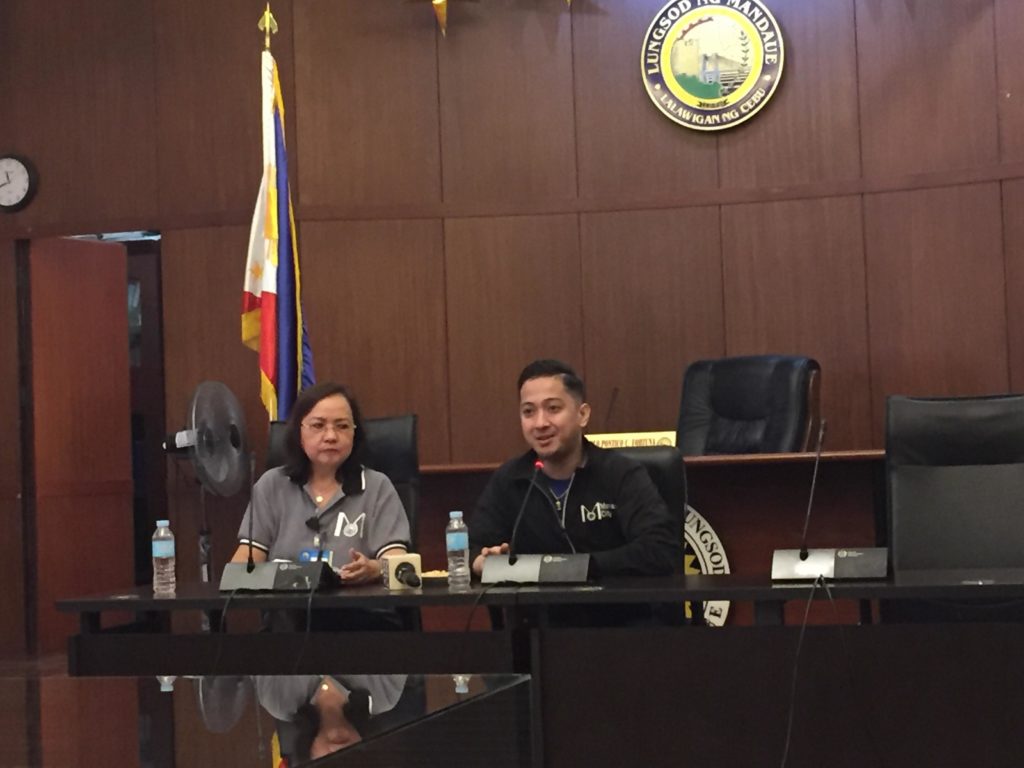Mandaue City to open recovery clinic for ‘moderate’ risk drug dependents

Mandaue City Health Officer Edna Seno and City Councilor Kevin Cabahug discuss during a press briefing about the city’s drug recovery clinic that will start operations on January 21. Photo by Rosalie O. Abatayo
MANDAUE CITY, Philippines — The Mandaue City government will soon be opening the door towards recovery for drug dependents categorized under ‘moderate’ risk.
Dr. Edna Seno, Mandaue City health officer, said the city’s drug recovery clinic located near the Mandaue City Hospital would start to accommodate patients on January 21.
“We would like to emphasize that this is open for all those who voluntarily submit themselves to be treated,” Seno told Cebu Daily News Digital in a press briefing on Monday, January 14 at the Mandaue City Hall.
Seno said they would accommodate at least 30 individuals in their first run of their outpatient program.
She also said that this drug recovery program would be free and would last for four months.
These patients will also be treated at the city’s P2-million recovery clinic, which is among the seven facilities nationwide that were funded by the Dangerous Drug Abuse Prevention and Treatment Program fund of the Department of Health (DOH).
Seno said that the rehabilitation program would, however, prioritize moderate risk patients from Mandaue City for now.
According to the Dangerous Drugs Board, moderate risk drug dependents are those who regularly use drugs but have not yet shown symptoms of substance abuse unlike that of the severe drug users.
Low risk users, on the other hand, are those, who have only started using illegal drugs or occasionally use drugs out of curiosity.
“Kani sila mga na-left out ni sa atong CBRP (community based rehabilitation program) kay ang dawaton ngadto kay low risk. Kani sila karon kadtong mga moderate risk nga voluntarily mo-submit sa ilang self for rehab,” Seno said.
She also said that they already had an agreement with the city police that there would be no police operations conducted within the facility so as not to intimidate their ‘warriors.’
According to Seno, the module of the drug recovery program for moderate risk patients would incorporate after care programs similar to that of the CBRP.
These include enrolling the recovering drug dependents into the alternative learning system (ALS) or the livelihood training of the Technical Education and Skills Development Authority (Tesda)./dbs
Disclaimer: The comments uploaded on this site do not necessarily represent or reflect the views of management and owner of Cebudailynews. We reserve the right to exclude comments that we deem to be inconsistent with our editorial standards.
